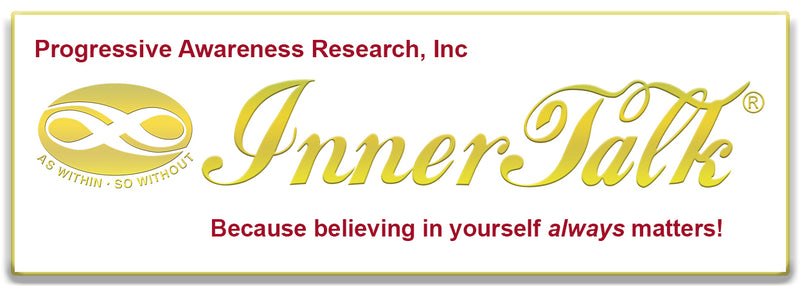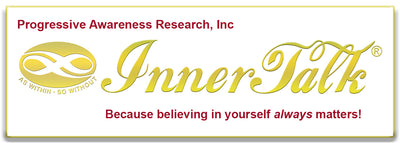Do Subliminal Self-Help Programs Work? (5): Subconscious Mind Power
Subconscious Mind Power

Everyone I have ever met or interacted with, everyone I have ever read or listened to, in fact every single human being from my experience has, at one time or another, desired to change something about themselves and found it to be exceedingly difficult, if not sometimes impossible. Still, there are many who alter various aspects of their behavior and beliefs successfully. The questions seem obvious: What does it take to realize each of our total potentials, and why do we sometimes succeed and at other times find only disappointing results?
When it comes to personal development there are a variety of so-called experts, with as many solutions as there are problems. Nevertheless, all of these specialists suggest, if not state directly, that the real power in the human development schema is that of the subconscious mind. If this is so, why then can I not just instruct my subconscious mind to think differently and produce the results I desire?
The fact is the subconscious mind is basically indiscriminate in the manner in which it accepts information. The problem then is twofold. First, there are already years of indiscriminate acceptance in my mind, and second, I act in reliance upon this information.
Negative Programming
All the statements that have ever been accepted are present in our subconscious minds, and for most of us that is negative programming. Some behaviorists have used numbers that indicate that for every one input of positive messaging there are 100 bits of negative!
How many times have each of us said to ourselves things like, “I can’t do it,” or “It never works for me” and so forth? How many times have each of us heard statements like, “You’re not old enough,” “That’s stupid,” “Money is the source of all evil,” “Life is difficult and then you die,” “Thank god it’s Friday,” “That will never work” and so on?
Just for fun I once started a list of statements that I had heard or said to myself that created negative expectations. I quit when I realized that to complete the list would take more time and paper than I was willing to dedicate to such a nonsensical task. Still, the message was loud and clear: the language programming many of my beliefs was essentially negative!
The consequence of this negative programming has been likened to that of a computer. The bio-computer brain/mind has accepted negative input just like a calculator accepts negative numbers. Then you or I add a few positive numbers to the program total and somehow expect change.
Our defense mechanisms often defeat our purposes.

The fact that we act in reliance upon the information, accepted indiscriminately by our subconscious minds, is a more pervasive problem. This means that if negative messages have caused us pain or fear then we adapt our behavior, our beliefs, around avoiding those circumstances and/or outcomes.
With this adaptation come choices. Most of our choices of this nature are deeply rooted in the subconscious. Our subliminal beliefs, those beliefs in the subconscious that arise from our desire to be accepted and to avoid pain, humiliation and rejection, determine our actions. All behavior is behavior of choice even if the choice is made at a subconscious level. Now, what happens is that we build defense mechanisms in order to protect us from former bad experiences and possible future rejection.
These defense mechanisms often defeat our own best interest. It is true, for many of us our worst enemy is often ourselves. Ignorant of these dynamics it is easy to see why more than 90% of the people who attend or participate in motivational gatherings or products are unsuccessful. The fact is, every time we tell ourselves something like “I am good!” the subconscious gives a thought to the conscious such as “Really! Good at what?”
Even when the behavior we desire is something as simple as success in our work place, these subliminal beliefs come into play. For example, when I ask a group of people how many of them would like to come up front and speak to the audience for five minutes on some topic I will assign them, rarely does anyone volunteer. A common fear is that somehow they will suffer deep embarrassment, humiliation and more. Now this same group of people will respond almost unanimously to the simple straight-forward question: Do you want to be successful in business? Their answer is always yes!
To succeed in business one must learn to speak. If there is a deep abiding fear of public speaking and a desire to be successful, there are contradictory motives present in the psyche. Thus, when a person reaches a certain level of success, for some inexplicable reason everything crumbles. What may be viewed as outside circumstances, is in truth inner conflict. In the instance of the fear of public speaking, the closer to success the individual gets, the more powerful the exertion by subconscious processes to eliminate the impending threat. Consequently conflicting factors or mechanics of our own psyche often defeat our stated desires without our conscious awareness.
The power of hypnosis exists largely in the direct communication with the subconscious. The conscious mind is generally in abeyance during hypnosis although one’s defense mechanisms can still play a significant role in the outcome. The advantage of sub-threshold communication is that it bypasses all conscious awareness. Unlike hypnosis, where attention and conscious assistance are often necessary, sub-threshold messages are not attended to by the conscious mind in any necessary manner.
You can rescript your inner talk.
The positive messages on an InnerTalk program eventually overtake the negative information contained in the subconscious. They literally rescript our own inner talk thereby priming positive self beliefs which begin the cycle of self fulfilling prophecies. When this happens the subliminal beliefs that formerly were self-limiting begin to change. As they change . . . so do we!
Life is indeed a miracle and each of us is entitled to experience the highest qualities of our birthright.

